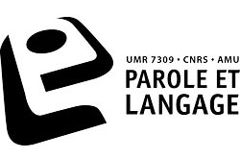Séminaire du 11 janvier 2019, 11h, en salle B011 au LPL
Matthijs Westera
(University of Amsterdam)
Intonational Compliance Marking: a theory of English intonational meaning
Here’s a conceptually simple theory of English intonational meaning that seems to work well for a number of empirical phenomena. It’s basically the old idea that rises mean ‘incompleteness’ and falls ‘completeness’, but made significantly more precise by considering what it means for an utterance to be ‘incomplete’ or ‘complete’. I define these notions in terms of (non-)compliance with the conversational maxims. To illustate: plain rising declaratives can express uncertainty about the truth (Quality), relevance (Relation), sufficiency (Quantity) or manner (Manner) of the utterance, that is, potential non-compliance with each of the Gricean maxims. I call this theory Intonational Compliance Marking (ICM). In this talk I’ll summarize the ICM theory and its application to rising declaratives (Westera, 2018), the rise-fall-rise contour (Westera, to appear), and, time permitting, list intonation and question intonation. In each case, precision about the maxims is what makes this (at the outset) simple theory generate fine-grained predictions. I hope that this work can inspire research on intonation in English and cross-linguistically, as well as on discourse particles and on pragmatics more generally.
Westera, M. (2018). Rising declaratives of the Quality-suspending kind. Glossa: A Journal of General Linguistics, 3(1), 121. DOI: http://doi.org/10.5334/gjgl.415
Westera, M. To appear. Rise-fall-rise as a marker of secondary QUDs. In Daniel Gutzmann & Katharina Turgay (eds.), Secondary content: The semantics and pragmatics of side issues. https://www.dropbox.com/s/zukzbj0jqcxfpln/
Contact : Cristel Portes








